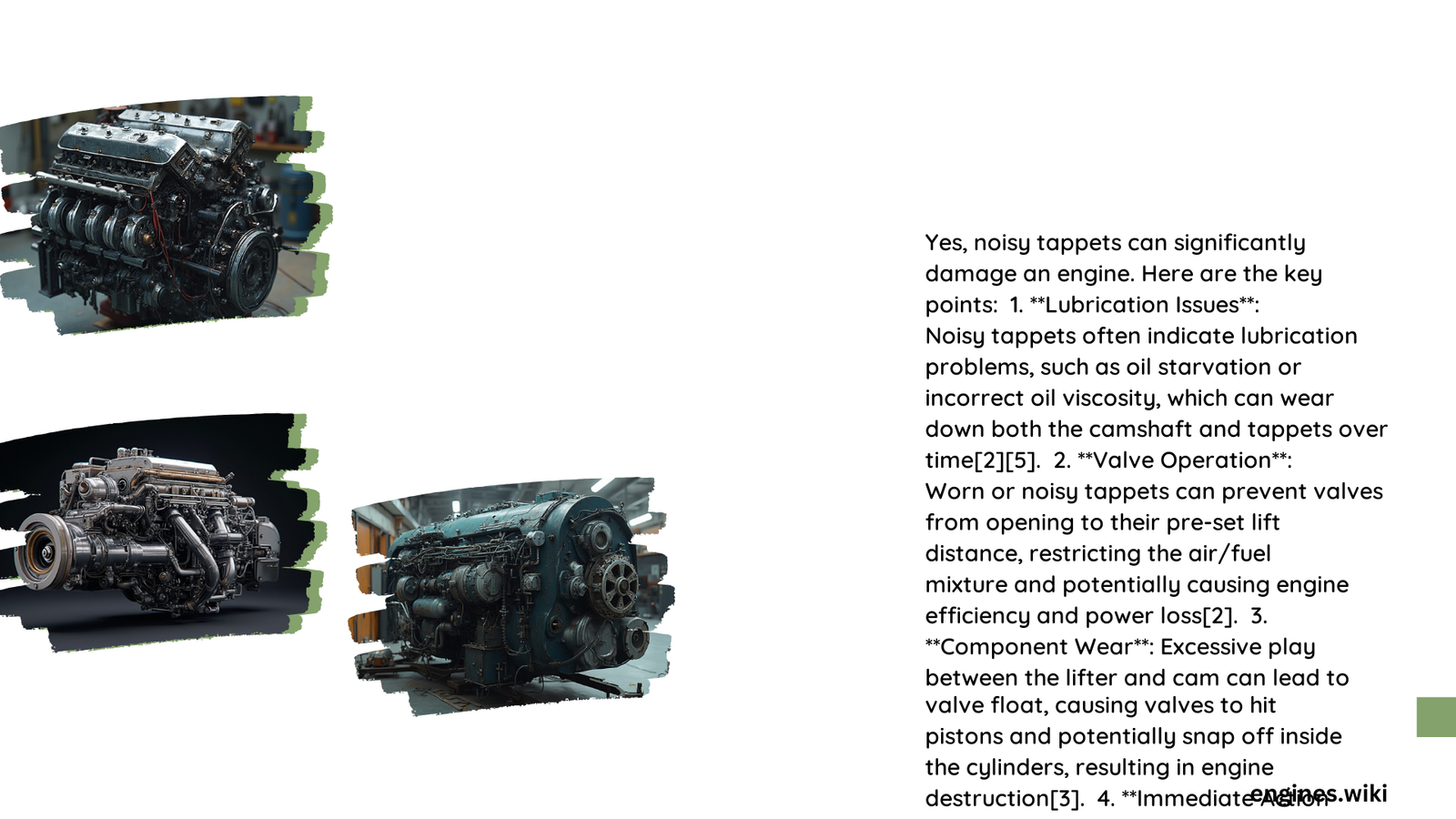Noisy tappets represent a critical warning signal in vehicle engines that can potentially lead to catastrophic mechanical failure. When hydraulic lifters or valve train components generate persistent ticking, clicking, or tapping sounds, they indicate underlying mechanical stress that could progressively deteriorate engine components, potentially causing thousands of dollars in damage if left unaddressed. Vehicle owners must recognize these auditory indicators as urgent mechanical communication requiring immediate professional assessment.
What Causes Tappet Noise in Engines?
Root Causes of Tappet Noise
- Insufficient Lubrication: Low oil levels or degraded oil quality
- Mechanical Wear: Excessive clearance between lifters and camshaft
- Component Degradation: Worn hydraulic lifters or valve train components
Potential Engine Damage Mechanisms
| Damage Type | Potential Consequences | Severity Level |
|---|---|---|
| Oil Pressure Reduction | Decreased lubrication efficiency | Moderate |
| Valvetrain Component Wear | Premature camshaft and valve failure | High |
| Structural Mechanical Damage | Potential complete engine failure | Critical |
How Do Noisy Tappets Impact Engine Performance?

Noisy tappets can significantly compromise engine performance through multiple interconnected mechanisms. The persistent mechanical noise indicates increased friction, reduced lubrication efficiency, and potential structural misalignment within critical engine components.
Performance Degradation Indicators
- Reduced power output
- Increased fuel consumption
- Irregular engine idling
- Potential misfiring
What Are the Financial Implications of Ignoring Tappet Noise?
Neglecting tappet noise can result in exponentially increasing repair costs. Minor issues potentially costing $500-$1,000 for lifter replacement could escalate to complete engine rebuilds exceeding $5,000-$8,000 if left unaddressed.
Recommended Diagnostic Steps
- Conduct comprehensive oil analysis
- Perform detailed valvetrain inspection
- Measure lifter clearance tolerances
- Evaluate camshaft wear patterns
When Should Professional Intervention Occur?
Immediate professional assessment is crucial when experiencing:
– Persistent ticking sounds
– Reduced engine performance
– Increased oil consumption
– Visible metal particles in oil
Technical Repair Strategies
Comprehensive Repair Approach
- Diagnostic Evaluation
- Comprehensive engine scan
- Detailed mechanical inspection
- Component Replacement
- Hydraulic lifter replacement
- Potential camshaft resurfacing
- Preventative Maintenance
- Regular oil changes
- High-quality lubricant selection
- Periodic valvetrain inspection
Conclusion
Noisy tappets represent more than an annoying sound—they’re a critical warning mechanism signaling potential catastrophic engine damage. Proactive maintenance, timely diagnostics, and professional intervention can prevent minor mechanical issues from escalating into expensive, comprehensive engine failures.
Expert Recommendations
- Address tappet noise immediately
- Maintain rigorous service schedules
- Use manufacturer-recommended lubricants
- Conduct regular mechanical inspections
Technical Complexity Warning
Vehicle engines represent intricate mechanical systems where seemingly minor issues can rapidly transform into significant mechanical challenges. Professional diagnostic expertise remains paramount in preserving long-term engine health.
